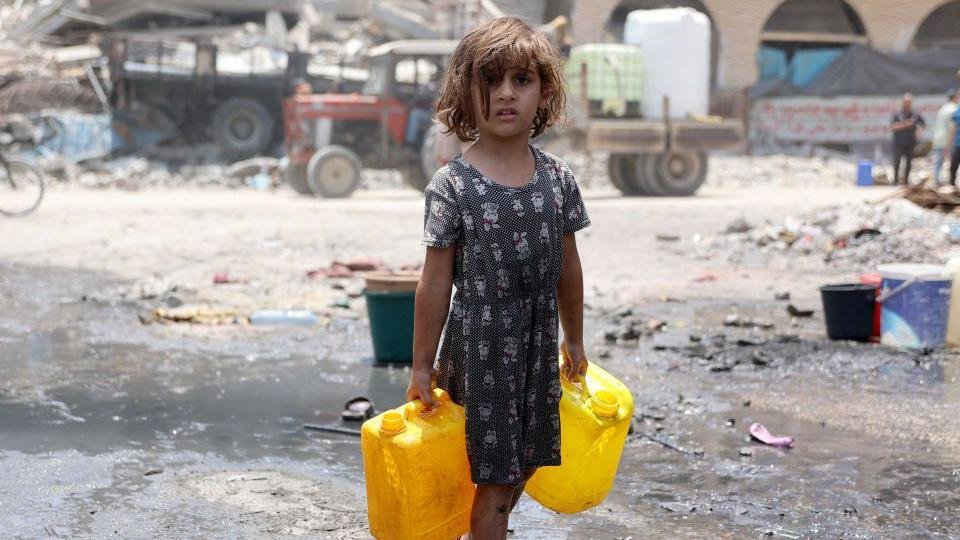A Grim Week in Gaza: Intensified Attacks and International Outcry
During U.S. Secretary of State Antony Blinken’s recent visit to Israel, the humanitarian crisis in Gaza took an unprecedentedly dark turn. The Israeli Defense Forces (IDF) launched a series of intense airstrikes on Gaza, leveling entire buildings and causing widespread devastation, particularly in the densely populated Jabalia refugee camp. Over 150 Palestinians, including a significant number of children, perished in these attacks, and countless others remain missing or trapped under rubble as aid workers struggle to reach them. Civilian access to aid, rescue services, and even media coverage has been restricted, raising concerns that the blockade on information is intended to limit global awareness of the human suffering unfolding.
Reports detail the unimaginable suffering endured in Gaza. Families have been decimated, and children, in particular, are bearing the brunt of the violence. The impact on Gaza’s youth is devastating: entire families have been lost, and children have been left homeless and orphaned, while hospitals, desperately in need of resources, struggle to provide care. In the latest attacks, critical civilian facilities, including schools and shelters, were targeted, with tragic loss of life, intensifying international concerns over potential violations of human rights laws.
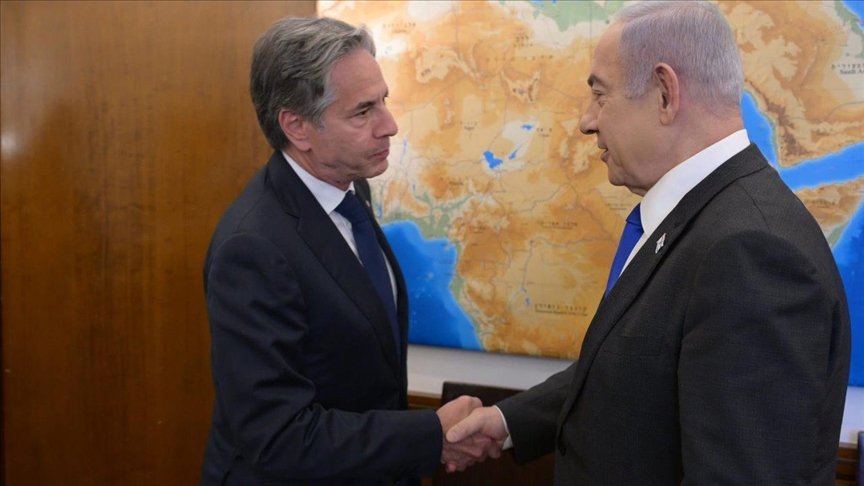
The Humanitarian Crisis: Children and Hospitals Under Siege
Children in Gaza face one of the most desperate situations in recent history. According to international humanitarian organizations, over 20,000 children have been killed, displaced, or reported missing amid the escalation. Accounts from within Gaza illustrate the harrowing reality faced by these young survivors, many of whom are left without access to basic necessities. Videos and reports show children walking barefoot for miles, carrying injured relatives in search of help. The inability to provide adequate medical care due to blockades and power shortages has created a situation where children and vulnerable populations are dying from preventable causes, unable to reach medical facilities outside Gaza due to ongoing restrictions.
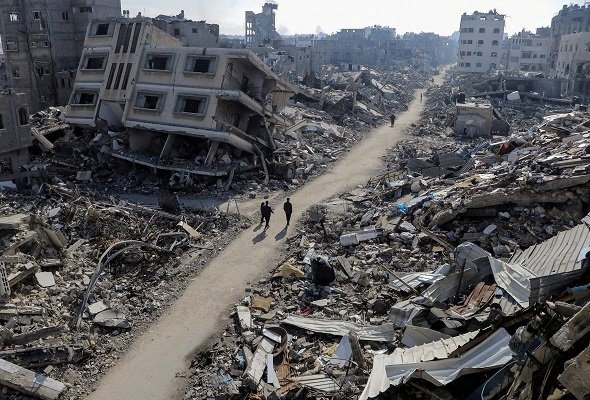
In one particularly disturbing incident, the IDF reportedly occupied Kamal Adwan Hospital in northern Gaza, a location where hundreds of medical staff, patients, and displaced civilians had sought refuge. Security footage reveals the distressing scene of doctors and hospital staff raising their hands in surrender. Reports indicate that numerous civilians were detained, while some of the hospital staff, including the hospital director, have been taken into custody by Israeli forces. These events highlight the grave risks facing healthcare workers in Gaza, who continue to operate under conditions that violate the most basic principles of medical neutrality.
Forced Displacement and the Use of Human Shields
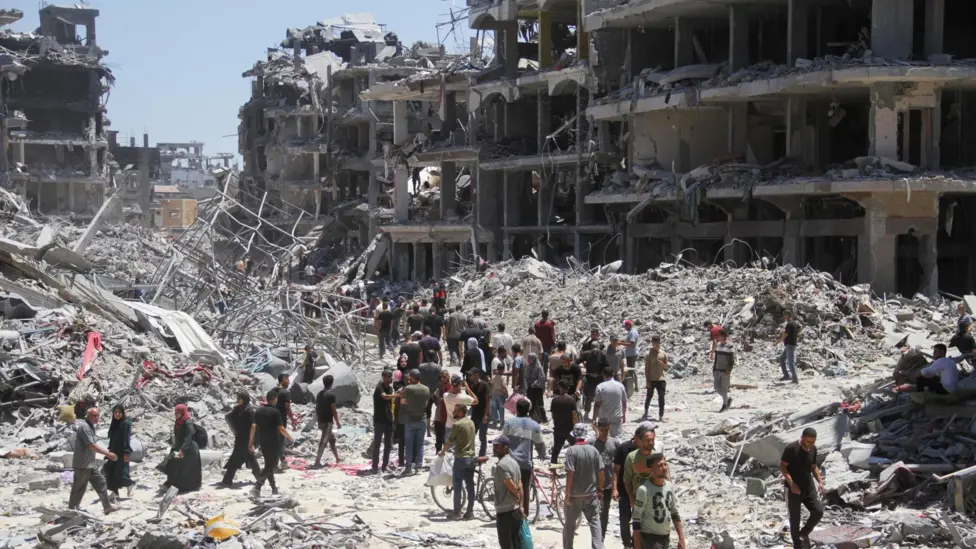
In addition to airstrikes, reports from international media indicate a troubling pattern of forced displacement and the use of Palestinian civilians as human shields by Israeli forces. Social media images circulated by soldiers reveal civilians in vulnerable positions, while reports have surfaced alleging inhumane treatment of detainees. Stories of displaced families and bodies left unattended in streets reveal the depth of the crisis, as humanitarian workers are often unable to access those in need due to military presence.
Statements from international observers and human rights advocates suggest that these forced displacements may constitute crimes under international law. Volker Türk, the United Nations High Commissioner for Human Rights, has raised alarms regarding the situation, describing it as the “darkest moment” in Gaza’s recent history. Türk has expressed concern that Israel’s continued operations could result in atrocity crimes, including ethnic cleansing. This assertion has drawn attention from global human rights organizations, many of which have intensified their calls for immediate intervention to protect civilians.
Israel’s Strategic Goals and Statements of Intent
Israel’s recent actions suggest a broader strategy beyond immediate military objectives. The “Generals’ Plan,” reportedly developed by the IDF, is said to outline a strategy for territorial control and population displacement in Gaza. Israeli political figures have not shied away from expressing support for policies that effectively endorse the removal of Palestinians from Gaza, with some leaders even characterizing this as a solution to ongoing hostilities. During a recent event attended by high-ranking officials, discussions revolved around a policy described by the slogan “Conquer, Kick Out, Resettle.” Such rhetoric, echoed by influential figures, reinforces fears of a systematic plan for large-scale displacement.
U.S. Secretary of State Blinken has defended Israel’s actions, asserting that they align with Israel’s right to self-defense. However, criticisms have mounted as the Biden administration has continued to supply military aid to Israel, reaching unprecedented levels in recent years. Despite private concerns over Israel’s tactics, including a “policy of starvation” that has reportedly exacerbated the humanitarian crisis, U.S. policy has largely continued to support Israel’s military actions without substantive limitations.
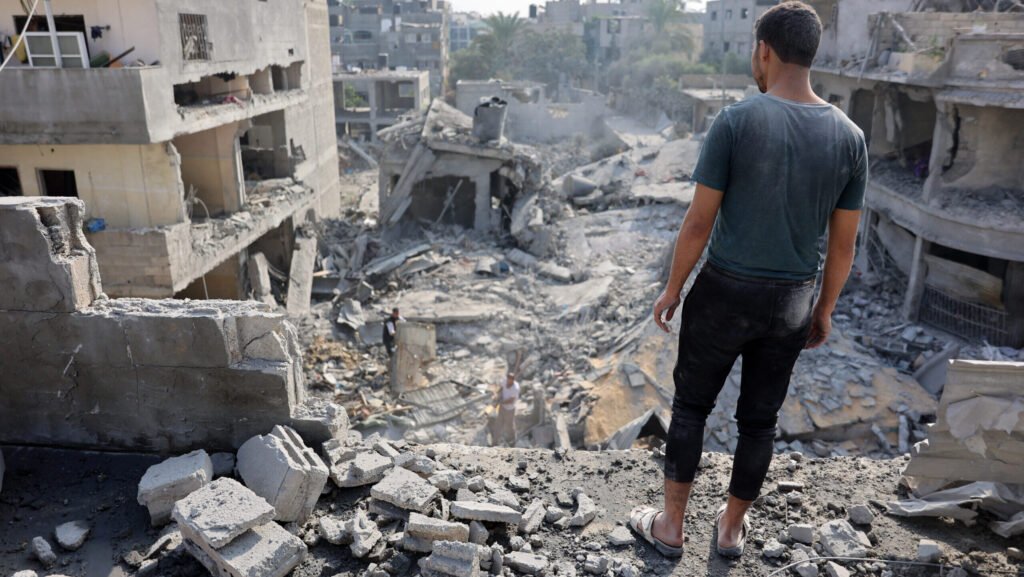
The Global Response and Growing Calls for Accountability
The international community has become increasingly vocal in its condemnation of Israel’s actions. Prominent organizations and human rights groups have issued statements describing the situation as one of ethnic cleansing, drawing comparisons to historical atrocities. The rights group B’Tselem, based in Israel, has denounced the ongoing displacement efforts, framing them as violations of universal human rights principles. International media coverage and statements from NGOs have amplified these concerns, pushing for a reevaluation of global responses to the crisis.
Western support for Israel, however, remains largely unshaken. While some leaders have expressed concern over the humanitarian impact of the military campaign, tangible measures to curb Israel’s actions have not materialized. This lack of substantial intervention raises questions about the effectiveness of international mechanisms meant to prevent large-scale human rights abuses. Activists and human rights advocates are calling for urgent reforms to global policy frameworks to ensure that countries engaging in prolonged military campaigns against civilian populations are held accountable.
A Call for Immediate Humanitarian Intervention
As the crisis deepens, the international community faces increasing pressure to address the urgent humanitarian needs in Gaza. Human rights advocates emphasize the necessity of immediate intervention to halt hostilities and provide protection for civilians. Calls for an international ceasefire and the establishment of humanitarian corridors have grown, with proponents arguing that such measures are essential to prevent further loss of life.
In a world grappling with complex global conflicts, the situation in Gaza underscores the critical importance of upholding humanitarian principles and protecting vulnerable populations. As leaders consider their responses, the international community must confront the ethical imperatives inherent in the unfolding crisis, acknowledging that lasting peace can only be achieved through a balanced and humane approach to conflict resolution.
